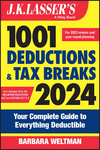Avoid 2011 Dirty Dozen
Tax scams can cost taxpayers penalties, criminal prosecution, and other serious consequences. Tax scams abound, and the IRS commissioner warns taxpayers to avoid them. In an effort to help, the IRS has listed the top 12 scams for 2011:
-
Hiding income offshore. U.S. citizens and residents are taxable on their worldwide income; having a foreign account does not avoid taxation. Some taxpayers have tried to avoid or evade U.S. income tax by hiding income in offshore banks, brokerage accounts, or through the use of nominee entities. Others evade taxes by using offshore debit cards, credit cards, wire transfers, foreign trusts, employee-leasing schemes, private annuities, or insurance plans. The IRS is cracking down on those who attempt to hide foreign income.
-
Identity theft and phishing. Taxpayers can have their identities appropriated. The IRS warns taxpayers to be careful and not share confidential information.
-
Return preparer fraud. Tax return preparers are under increasing scrutiny from the IRS. Clients of those who take false positions on tax returns can land those clients in hot water.
-
Filing false or misleading forms. Returns that blatantly disobey the law as a ploy to obtain tax refunds could result in criminal penalties.
-
Frivolous arguments. Outlandish claims, such as wages being nontaxable, won’t cut it and can result in penalties.
-
Nontaxable Social Security benefits with exaggerated withholding credit. Misreporting withholding and claiming benefits to be nontaxable if they are taxable can result in a $5,000 penalty.
-
Abuse of charitable organizations and deductions. Overvaluing property contributions, retaining control over contributed property, and other erroneous measures are impermissible and subject to penalty.
-
Abusive retirement plans. Some promoters suggest ways to avoid contribution limitations and other rules for retirement plans; these are scams. In addition to costly promoter fees, taxpayers can be subject to IRS penalties.
-
Disguised corporate ownership. Hiding ownership of a corporation by having a third party obtain a tax identification number is a scam; penalties may result.
-
Zero wages. Wages are reported to employees on W-2 forms, but some taxpayers file erroneous information returns to counter reported wages and evade taxation. Civil and criminal penalties can result.
-
Misuse of trusts. Trusts have many legitimate purposes, but when they are used to create deductions for personal expenses or other nonvalid purposes, they are scams.
-
Fuel tax credit scams. While farmers who use fuel for off-highway business purposes may be entitled to a tax credit, others who claim such credit may be committing fraud.
Source: IR-2011-39, April 7, 2011



